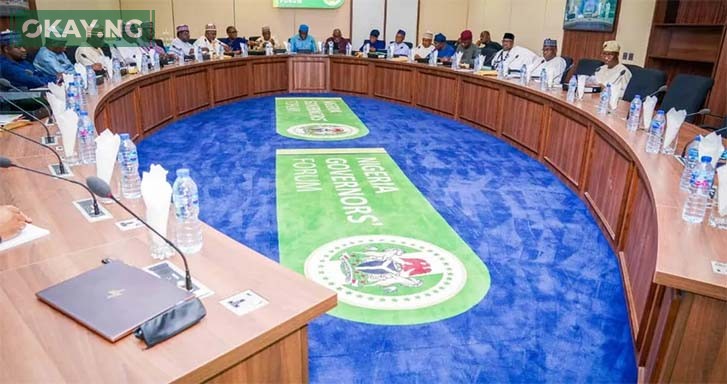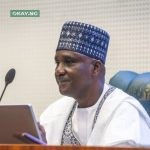State governors across Nigeria have unveiled ambitious plans to inject a substantial N17.51tn into capital projects within their respective states in 2025, aiming to bridge the significant infrastructure deficit plaguing the nation. This considerable allocation follows a year where states earmarked N11.34tn for similar projects in 2024 but fell short due to a collective deficit of N3.98tn, underscoring the persistent financial challenges faced by sub-national governments.
These figures indicate a robust commitment to infrastructure upgrades, with a planned expenditure of N28.85tn over two years, fueled by improved revenue allocations from the Federal Government. The increased financial capacity stems from a notable surge in statutory allocations from the Federation Account Allocation Committee (FAAC), which saw an increase of N4.994tn to N15.12tn in 2024. This represents a substantial 49.24 percent rise from the N10.143tn disbursed in 2023.
An analysis of FAAC monthly communiqués reveals that the 36 state governments received the largest share, amounting to N5.22tn, which is 34.5 percent of the total N15.14tn allocated to the three tiers of government. Despite this financial boost, many states still struggle to fulfill their mandate of delivering crucial infrastructure projects for their citizens. This persistent financial shortfall has led to delays in the implementation of numerous infrastructure projects, hindering progress in vital sectors such as roads, healthcare, and education.
Examining the 2024 budget implementation reports for 32 states and the approved 2025 budgets for 35 states, reveals a concerning trend of shifting spending priorities towards recurrent costs and debt servicing, which raises questions about the long-term impact on economic development.
The analysis of 2024 budget implementation reveals a mixed bag of results. Nine states, including Delta, Ekiti, Edo, Lagos, Rivers, Yobe, Osun, Bauchi, and Akwa-Ibom, achieved an impressive implementation rate of over 80 percent. Another 15 states managed to implement between 50 to 76 percent of their targeted spending, while eight states fell below the 50 percent mark.
Despite the prevailing financial constraints, states like Lagos, Niger, and Enugu have emerged as front-runners in planning capital expenditure, allocating the largest portions of their budgets to infrastructure development.
Read Also: 2025 Budget Revised: N54.9 Trillion Approved with Key Adjustments
A state-by-state breakdown illustrates the varying degrees of success and ambition. Lagos State, with the highest proposed capital expenditure of N1.53tn in 2024, successfully spent N1.31tn, achieving an 85.5 percent implementation rate. In contrast, Abia State, which initially proposed N474.29bn for capital expenditure in 2024, only managed to spend N250.47bn, representing a 52.8 percent implementation rate. Akwa Ibom had a capital budget of N573.32bn for 2024 but appropriated N483.88bn, reflecting an 84.4 percent implementation rate. Adamawa State planned N146.39bn but only spent N109.99bn, resulting in a 75.2 percent implementation rate. Other states recorded diverse levels of implementation as governors endeavored to improve infrastructure within their jurisdictions.
Looking ahead, 35 state governors have expressed intentions to allocate at least N17.51tn to enhance infrastructure in 2025. This represents a substantial increase of 54.39 percent, or N6.17tn, from the N11.343tn proposed in 2024.
However, experts have voiced concerns about the states’ capacity to execute these ambitious projects promptly, especially considering the significant deficits carried over from previous years. With numerous projects already delayed, stakeholders are worried that the 2025 budgets may face similar implementation challenges unless funding gaps are adequately addressed.
A closer look at the 2025 plans reveals that Abia plans to spend N611.67bn, Akwa Ibom has increased its projection to N655bn, Adamawa plans to spend N348.96bn, and Anambra plans to spend N467bn. Bauchi plans to spend N284.02bn, Bayelsa plans to spend N433.26bn, and Lagos State has set an ambitious target of N2.07tn for infrastructure development. Delta State allocated N630.46bn for infrastructure in 2025, with other states outlining their respective plans for the year.
A recent report highlights several challenges faced by Nigerian states, including subdued growth in Internally Generated Revenue (IGR) due to socioeconomic constraints and inefficiencies in tax collection. Most states heavily rely on FAAC transfers, with Lagos being a notable exception due to its higher IGR capabilities. Additionally, rising current spending, driven by high inflation and recent increases in the minimum wage, further strains state finances.
The report also notes that most Nigerian states depend on subsidized facilities from the Federal Government to finance their investments. Despite significant capital expenditure needs, states struggle to fully utilize budgeted capex due to funding and implementation constraints, with an average of only about 60 percent of budgeted capex executed. This shortfall is attributed to several factors, including funding and implementation challenges, low revenue, and falling short of the extensive investments required to meet the growing demands of the population and the economy.
As the year progresses, citizens will be closely monitoring whether the states can achieve these ambitious targets and address the critical infrastructure gaps that continue to hinder the nation’s progress. The stakes are high, as improved infrastructure is essential for unlocking economic potential and enhancing the well-being of Nigerians across the country. I believe this focus on capital expenditure, despite the challenges, is a crucial step towards building a more prosperous and sustainable future for Nigeria.












